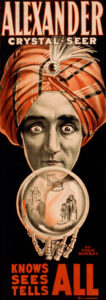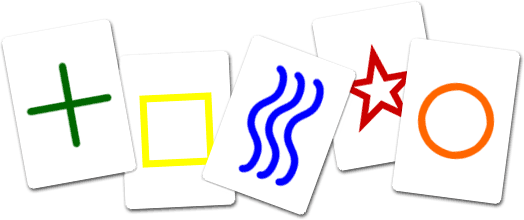
Ever answer a phone call, only to hear the person you were just thinking of on the other end? Ever had a dream about something that later actually happened? Ever felt like somebody read your mind? Some people may interpret these sorts of experiences as extrasensory perception, or ESP. ESP is defined as an awareness of the world that occurs through some mechanism other than the known senses — mind reading, sensing when a far-off friend is in trouble, foreseeing the future, and other phenomena more commonly associated with illusion artists than with science. Science deals with observations of the natural world — from far off galaxies, to microorganisms, to human behavior — and can shed light on natural explanations for those observations. So what does science have to say about ESP? Though ESP might not seem like something scientists would examine, the results of ESP — knowledge of events in the world — are well within the realm of science, and so we can use the tools of science to study phenomena sometimes attributed to ESP.1
Using these tools, scientists have studied whether ESP exists. Their experiments have explored all kinds of ESP, but most have focused on mind reading. In the most typical of these experiments, one person, the sender, goes through a deck of cards, each depicting one of five symbols (like a star or cross), while another person, the receiver, tries to determine what symbol the sender is looking at. To eliminate any tips from body language, the sender is often shielded from view. If the receiver were to correctly identify the symbol more often than could be explained by chance, it would suggest that ESP does indeed exist. However, researchers have found that receivers aren’t particularly accurate in these experiments; no evidence of mind reading or any other sort of ESP has been found.2 Since science hasn’t uncovered any evidence that ESP even exists, no scientific investigations of its potential mechanisms have been undertaken.

ESP itself is neither scientific nor unscientific — but it can be studied scientifically or unscientifically, and scientific studies find no support for the hypothesis that ESP exists. Those who ignore the evidence and insist that ESP is a real, natural phenomenon fail to meet one of the key aspects of scientific behavior: assimilating the evidence.
- To learn more about scientific behavior, visit Participants in science behave scientifically.
- Learn more about what topics science can study in our section on what science is.
1Here we are taking a scientific view of ESP. However, some people have a different view — they consider ESP to be a spiritual or supernatural phenomenon, which involves tapping into another level of consciousness or an alternate dimension. In this case, ESP is not "natural" in a scientific sense, and thus cannot be studied with the tools of science.
2For example, see: Milton, J., and R. Wiseman. 1999. Does psi exist? Lack of replication of an anomalous process of information transfer. Psychological Bulletin 125:387-391.
